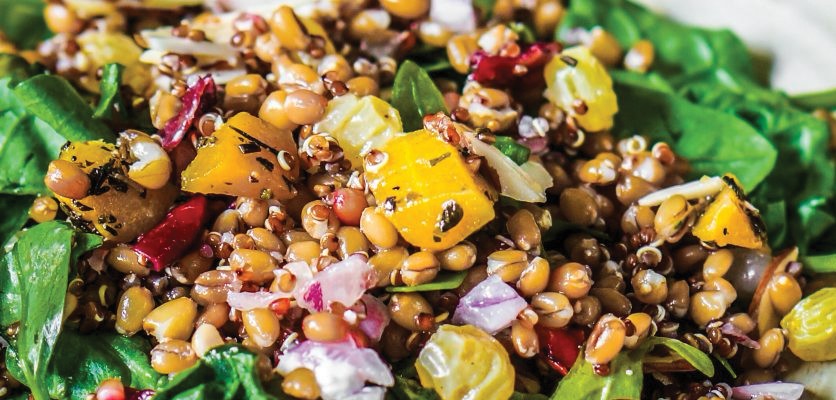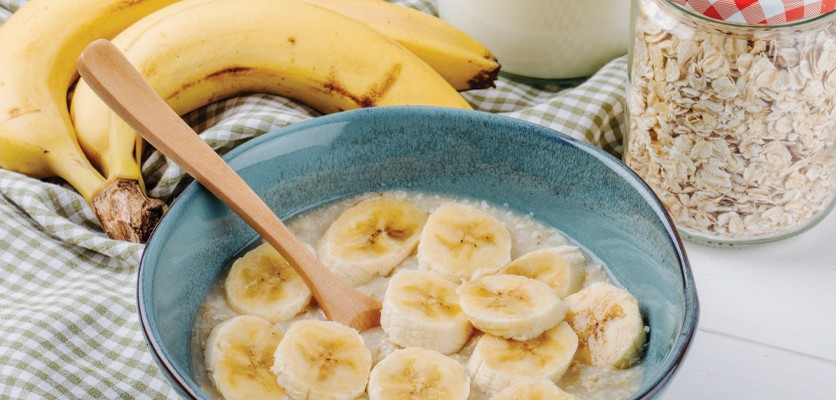Veganism, once a niche lifestyle, is now a growing trend fueled by health, environmental, and ethical reasons. As conversations around vegan eating continue to gain momentum, many people are becoming more curious about what it really means for their bodies. But beyond the buzz and benefits, many wonders: what’s happening in your digestive system when you’re going vegan?
As a dietitian, one of the most common questions I get is “Will a vegan diet improve my digestion, or will it cause more bloating and gas?”. Let’s explore the science behind how veganism interacts with your gut.
Too Much Fiber Too Sudden

As we all know, vegan diets are naturally high in dietary fiber, especially soluble fiber from legumes, oats, fruits, and vegetables, while insoluble fiber comes from whole grains, nuts, and seeds. What’s it good for? Fiber feeds your gut microbiota and helps improve bowel regularity, reduces the risk of constipation, and supports better cholesterol and blood sugar control. But here’s the catch: if your previous diet was low in fiber, a sudden increase can lead to bloating, gas, and abdominal discomfort.
So, here are some tips for a smooth transition:
- Increase fiber intake gradually over two to three weeks
- Drink six to eight glasses of water to help fiber move through the digestive tract
- Soak legumes to reduce gas-causing compounds
- Cook cruciferous vegetables well to ease digestion
- Limit raw onions and garlic to prevent bloating
- Consider small, frequent meals to avoid overloading your gut
Gut Microbiome:
Vegan diets, particularly those rich in whole plant foods like whole grains, can promote the production of short-chain fatty acids (SCFAs) through the fermentation of dietary fiber, resistant starch, and oligosaccharides by the gut microbiota. SCFAs help to support colon health by reducing gut inflammation, enhance cholesterol excretion and inhibit cholesterol synthesis, and protect against gastrointestinal conditions such as irritable bowel syndrome (IBS) and inflammatory bowel disease (IBD).
Good Bacteria Is Great for the Gut
You’ve probably heard of probiotics, the “good” bacteria found in fermented foods, and prebiotics, the plant fibers that help these bacteria grow. When combined, they create synbiotics—a powerful team that supports optimal gut function. Synbiotics are essentially probiotics and prebiotics working together in harmony.
This combination is especially important on a vegan diet. Since vegan diets are naturally high in prebiotics from foods like whole grains, oats, fruits, vegetables, garlic, onion, leeks, and bananas, adding probiotic-rich plant foods such as sourdough, tempeh, kimchi, miso, or dairy-free yogurts with live cultures helps create a balanced gut environment. This can help reduce inflammation and protect the lining of the gut.
Dietitian Tip: Build a synbiotic combo into your daily meals, for example:
- Overnight oats with banana slices (prebiotics) + a spoon of dairy-free yogurt (probiotics)
- Leeks (prebiotics) + Miso based soup (probiotics)
- Brown Rice (prebiotics) + Kimchi Soup (probiotics)

About digestive enzymes & nutrient absorption
Some people worry that vegan diets might impair nutrient absorption. It’s true that plant sources of iron, zinc, and calcium are generally less bioavailable than those from animal sources. However, the gut can adapt over time. There are also several strategies that can help enhance nutrient absorption on a vegan diet. For example, pairing iron-rich foods like lentils and chickpeas with sources of vitamin C, such as tomatoes or fruits, using fermented soy products like tempeh or miso which can aid digestion and choosing fortified plant milks to ensure adequate intake of calcium and vitamin B12.
Complete Malaysian Plant-Based Gut-Friendly Meal
Here’s an example of a complete Malaysian plant-based, gut-friendly meal. For the main dish, enjoy Tempeh Asam Pedas served with ulam-ulaman and brown rice. Tempeh provides a good source of probiotics, iron, and calcium, while the tamarind (asam) and tomatoes used in the dish are rich in vitamin C. Brown rice acts as a prebiotic, supporting the growth of healthy gut bacteria, and ulam, a variety of traditional raw Malaysian herbs and vegetables, also offers natural prebiotic benefits.
To complement the meal, opt for a glass of fortified soy milk, served either hot or cold. Be sure to choose unsweetened soy milk that is fortified with calcium and vitamin B12 for added nutritional support.
Conclusion
So, is veganism better for your gut? Generally, yes, if it’s well planned. A high-fiber vegan diet, introduced gradually, can improve bowel regularity and support healthy gut bacteria. Synbiotics, abundant in plant- based meals, further enhance digestive balance. While nutrients like B12, calcium, and iron need attention, with mindful planning, a vegan diet can be great for your gut. If you’re considering the switch, especially for gut health, speak to a dietitian to tailor a plan to suit your needs.
This article first appeared in BusinessToday, 26 July 2025.
Share:
Was this article helpful?
Share:
Was this article helpful?
Health Packages
Elevate your health with tailored health packages at Columbia Asia Hospital. Take charge of your health journey today.
Pink October 2024
From
RM80
12.12 CheckJer Health Package
RM140
Find Out MorePink October 2025
From
RM80
AIA Policyholders Self-pay Benefits
Columbia Asia 30th Anniversary Promotion “Maternity & Baby”
HLA Policyholders Promo: Influenza Vaccination
RM65
Find Out More
